Merry
Christmas Friends in the Name of Safety:
The
Safety Section would like to take this
opportunity to say "Thank You" for your
support this year. We have been through
some major challenges and changes and
without you, our friends, we would not
have survived. As we look back on 2009,
we are reminded that safety still
matters! As Christmas rapidly
approaches, please keep safety in the
forefront at work and home. Merry
Christmas and Happy New Year!
Safety Section UPDATE: After 80
years of free service, we are now
Fee-based. Please give us a call to
schedule your safety training classes
early. Thanks again for your continued
support!
New Online Training Calendar: In
order to better serve you, we now have
an online Training Calendar. As
workshops and seminars become available,
they will be posted on our calendar.
Please check it out.
ONLINE TRAINING CALENDAR
Be on the lookout for Workshops &
Seminars coming soon!
80th Statewide Safety
Conference!
Mark your
calendar now for
May
11-14, 2010! Eighty Years of Safety and
Counting...
|
Regional Safety Councils

Please... don't forget to support your
Regional Safety Councils by joining
their membership ranks and participating
in their scheduled events. For
membership applications, see the Quick
Links to the right.
|
Always
on the job
Use your safety sense at
home, too
More
people die and are injured in
accidents at home than at work. Over
20,000 people die in home accidents
every year, and more than 30 percent
of all injuries occur at home. Like
accidents on the job, most of these
can be prevented. The largest number
of serious accidents at home result
from:
-
Falls
-
Fires
-
Drowning
-
Poisoning
Here's how to protect
your family from falls:
-
Keep floors, and especially
halls and stairs, free of
clutter. Don't stack magazines,
tools, laundry, toys, or other
items on the floor or steps.
-
Make sure stairways are well
lit.
-
Check that all stairs, including
those to the basement, have
sturdy railings.
-
Tack down any loose pieces of
carpet or linoleum.
-
Use nonskid mats or decals in
bathtubs or showers.
Small children can drown
in bathtubs, so NEVER leave them
unattended. If you have a pool, make
sure everyone knows how to swim and take
these precautions:
-
Never let anyone swim alone.
-
Never let anyone swim when
they're tired or have used drugs
or alcohol.
-
Fence in the pool and keep it
locked when no one's there.
-
Cover the pool when it's not in
use.
-
Learn CPR, so if there is an
accident you'll be able to act
quickly.
Here's how to prevent
poisoning:
-
Read labels on household
cleaners, paints, and garden
supplies, and follow their
instructions for use, storage,
and clean-up.
-
Store cleaning solutions,
pesticides, and other hazardous
chemicals in places where
children can't reach them.
-
Keep containers closed when not
in use.
-
Dispose of old, used, or
unlabeled substances properly.
Find out about your town's or
region's hazardous materials
collection days.
Bring your safety sense
home so you can always be on the job for
the safety of yourself and your family.
|
 Wash
Away Illness Wash
Away Illness
How to prevent colds and
flus-including H1N1
The second week of
December was
National Handwashing Awareness Week.
According to the Centers for Disease
Control and Prevention (CDC), frequent
and careful handwashing is one of the
best ways to prevent infection-and to
keep you healthy and on the job.
Believe it or not,
there's a right way to wash your hands
effectively:
-
Wet hands with clean running
water (warm water if available)
and apply soap.
-
Rub hands together to make
lather and scrub all surfaces.
Pay particular attention to
fingers, fingertips, and under
fingernails where germs love to
breed. Palms are heavy germ
zones, too.
-
Continue rubbing hands for 15-20
seconds-about the time it takes
to sing "Happy Birthday" twice.
-
Rinse hands well under running
water.
-
Dry hands using a paper towel or
air dryer. If drying hands with
a paper towel, use it to turn
off the faucet.
If soap and clean water
are not available, use an alcohol-based
hand rub to clean your hands.
Alcohol-based hand rubs significantly
reduce the number of germs on skin and
are fast acting.
-
Apply product to the palm of one
hand.
-
Rub hands together.
-
Rub the product over all
surfaces of hands and fingers
until hands are dry.
|
|
Five Second Rule!
 By
Michael Nance By
Michael Nance
I am betting that most of
you have forgotten about the "scare" that
was brewing roughly a decade ago. Its hard
to believe that it has been ten years since
all of "The Year 2000" hoopla! Remember
hearing that Y2K was the end of the world?
That all of our computers would crash? That
we would lose all of our money because the
banks wouldn't be able to operate (who would
have thought we would really lose our 401K
money ten years in the future)? That power
outages would occur all over and planes
would not be able to fly? Luckily, January
1, 2000 came and the world went on with its
normal life. Has it really been ten years?
The first decade of the 21st Century has
just flown by!
With a new year and a new decade we start to
think of the future, and sometimes the
past. After my children were born, safety
was the #1 concern for me. Let me state
that differently; new safety issues
developed so I did consider safety being
important before the kids were born. Did I
assemble the crib correctly? Was the baby
safety gate strong enough? Were they
sleeping in the safest position? Did I do
"everything" on the wife's to-do list? Now,
in their early teen years there is a
different set of concerns. Are their
schools safe? Are they making the right
safety choices when they cross the road to
school or with the peers they meet? If they
are online, my wife and I harp on internet
safety (by the way, did you know my teenage
daughter is the ONLY one in the world
without a facebook)? Let's not hash that
all over again. The point is, my concern for
their safety has changed over the past
decade, and maybe yours has too in the
workplace. This is where we look to the
future and make those "resolutions" now to
be safer in "2010 and beyond". One of my "beyonds"
is driver education. If at all possible, I
want my daughter to sit in on one of Mel
Harmon's Defensive Driving courses. Her
permit is just around the corner.
Many of you that I have met over the past
few years have expressed how challenging it
is in today's economy with balancing
stronger workloads and safety. There is so
much that needs to be done and at times it
can get overwhelming. Safety has to be a
core value in 2010 and beyond to succeed.
The key is realizing that it takes specific,
deliberate steps to achieve a successful
safety program. It also takes guts to stand
up for safety at times. If you have had the
chance to hear the John Martin story, you
know what I mean. Making safety a priority
on a regular, consistent basis will ensure
success. Let's go into 2010 with identifying
your biggest needs and let our department
help you. We offer so much for so very
little expense. Please check our web site
often to look for workshops in your area.
We are offering Hazwoper, NFPA-70E,
Water/Wastewater, Defensive Driving, CPR/FA
(both Adult and Infant/Pediatrics),
Competent Person, Work Zone. All this in
addition to the APW's (Accident Prevention
in the Workplace.
To switch gears just a little, I heard a
phrase recently that I can recall hearing
when I was growing up. It's called the
"5-second rule". Remember? Say you're
unwrapping a Reese's cup and it falls to the
floor. If you really wanted it, you would
state "5 second rule", pick it up and eat it
(of course you had to get it back in a
sanitary condition by blowing on it first).
Speaking of unwrapping candy, if you happen
to be in church trying your best to be
silent about getting that cough drop
unwrapped, please just go ahead and get it
out in one quick motion! You're just
prolonging the noise by being slow. At the
moment, I can't think of any safety issues
by dragging it out.
Yesterday when my daughter screamed out "5
second rule", it stuck with me for some
reason most of the night because I thought
of how many injuries and fatalities might
have been prevented if someone had simply
stepped back and took 5 seconds to really
think; "Is this safe?" Do not
misunderstand, I am not saying that it only
takes 5 seconds to determine the hazards of
a job or task. More of a last step after
the proper procedures is to be placed in
motion. You may have heard the "rule" as
being 3 seconds, or 4, it really doesn't
matter. The point is, taking just a few
seconds to think may save your or a
co-workers life. Sort of like taking a few
extra seconds to determine if it's safe to
pull out into the intersection. I sure hope
my daughter will take that extra few seconds
during her driver's ed training and for the
rest of her life.
My most recent violation of the 5 second
rule was when I saw a drip coming from the
main water valve of our home. Let me place
this image in your head and I repeat, it was
the MAIN cut off valve. Imagine this, you
see the drip and think that looks like an
easy fix and quickly grab the knob to
tighten it without thinking of the "what
if's", and it snaps off. Can you picture
Hoover Dam inside your pantry? I can. That
5 seconds turned into 5 minutes to get the
water shut off at the street. The parts to
repair were cheap, less than $10 but it took
a long time to clean up the mess. Wish I
could get those "5 seconds" back.
Also in our busy and rushed holiday demands,
take time to remember those serving in our
Armed Forces. Whether they are stationed in
the US or abroad, they (as those in the
past) have protected our freedom to
celebrate in the manner that we choose.
To close, I want to thank everyone that has
allowed our services to enhance your safety
programs. We hear of reduced injuries and
expense all the time. Even though our
section has made necessary changes required
by our legislators, you can't beat the bang
for the buck. We are also offering the
30-hour and Advanced APCAP's again for
2010. We are listening to you and
developing new programs. Give us a call and
schedule your needs. It only takes
"5-seconds" to dial the number.
Editor's note: Michael Nance is the NCIC
Blue Ridge, Southern & Western Piedmont
areas Safety Representative. If you are
interested in having one of our programs
in your area, please give Michael a call
at 919-218-9047 or email him at
Michael.Nance@ic.nc.gov
|
|
Joy to the World
Spirituality linked to better
health
For many people, the
holidays are a time of spiritual reflection,
which is a good time to remember that
spirituality is one of the foundations of a
wellness lifestyle. Studies have shown the
mind-body connection in our health profile.
Patients with negative or stressful moods,
for example, have been shown to develop more
serious illnesses than those with positive
outlooks. Another study revealed that people
who reported positive emotions showed
greater resistance against colds.
So how can you make the
goodwill of the season last all year?
-
Have a regular quiet time.
Practice prayer or meditation to
focus on the bigger picture in life
and realign your priorities with
what's important to you.
-
Contemplate a higher power.
Whether at church, synagogue,
temple, mosque, a mountain meadow,
or the open sea, explore your
beliefs about the universe and your
place in it.
-
Make meaningful connections with
family and friends. We are a
communal species and draw strength
and comfort from our relationships
with each other. Studies have shown
that chronically ill people fare
better when they have people who
care.
-
Volunteer. Studies also show
that helping others-whether they're
struggling because of an economic
downturn or a natural disaster-can
increase your overall well-being.
These practices can give you
a sense of purpose that leads to a
fulfilling life.
Now you know. Dennis

|

-
Know as "Fish Town" in the early 1700's
when Blackbeard frequented the coast,
"Beaufort Town" was established as a
seaport with the right to collect
customs, in 1722.
- Whitewater Falls in
Transylvania County is the highest
waterfall in the eastern United States.
- Beech
Mountain is Eastern America's highest
town at 5,506ft above sea level.
- Andrew Jackson,
seventh President of the United States,
was born in the Waxsaws area on the
border of North and South Carolina.
- The first football
player on a Wheaties box was Walter
Payton of Columbia.
- The environmentalist
President Teddy Roosevelt barred the
Christmas Tree from being displayed in
the White House.
- Electric Christmas
tree lights were first used in 1895. The
idea for them came from an American,
Ralph E. Morris. The new lights proved
safer than the traditional candles.
|
Safety by the Numbers
Test your
knowledge of safety facts
Remembering certain key
numbers can sometimes be important to your
safety and health on and off the job. To
complete this safety by the numbers quiz,
just fill in the blanks below with the
correct number, and then check your answers.
-
When driving, always keep __________
seconds behind the car in front of
you and _________ seconds at night.
-
Never climb higher than the ________
step from the top of extension
ladders.
-
Stay at least __________ feet away
from power lines.
-
If your blood pressure consistently
measures __________/__________ or
more, you have high blood pressure.
-
Leave at least __________ inches of
clearance under fire sprinkler
heads.
-
The number __________ in a blue
diamond on a color-coded chemical
label means the chemical presents a
severe health hazard.
-
Flammable liquids have a flash point
of under __________ degrees F.
-
If a chemical splashes in your eye,
flush your eye for at least _____
minutes.
-
Walking at a moderate pace can burn
about __________ calories an hour.
-
If your blood alcohol concentration
is ____________ percent or higher,
you are considered legally
intoxicated in most states.
Answers at end of Safety
Bulletin.
|

Ready for Review
Do your own
performance appraisal
Prepare for your next
performance appraisal by reviewing these key
issues:
-
Quality of work. Do you avoid
errors and consistently meet
required standards?
-
Quantity of work. Do you
manage your workload well and
accomplish all assigned tasks?
-
Accomplishments. What are you
most proud of achieving?
-
Performance goals. Did you
meet or exceed the goals set in your
last performance appraisal? Do you
have new goals for the next review
period?
-
Time management. Do you keep
up with production schedules and
meet deadlines?
-
Safety. Do you work safely
and avoid accidents and near misses?
-
Behavior and attitude. Do you
work well with others, follow
directions, take initiative, etc.?
-
Attendance and tardiness. Are
you at work on time every day? Do
you give adequate notice when you
have to miss work?
Being well prepared for a
performance appraisal will make it more
meaningful. Remember, one of the major
reasons for conducting performance
appraisals is to help you improve your
performance and achieve your career goals.
Always be ready for your review.
Read More...
|
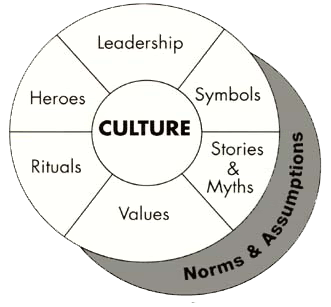 Safety
Culture: "What Is At Stake" Safety
Culture: "What Is At Stake"
I. What Is
Safety Culture?
The UK Health and Safety Executive defines
safety culture as " . . . the product of the
individual and group values, attitudes,
competencies and patterns of behavior that
determine the commitment to, and the style
and proficiency of, an organization's health
and safety programs."
(1) A more succinct definition has been
suggested:
"Safety culture
is how the
organization behaves when no one is
watching."
Every organization has a safety culture,
operating at one level or another. The
challenges to the leadership of an
organization are to:
1) determine the level at which the safety
culture currently functions;
2) decide where they wish to take the
culture; and
3) chart and navigate a path from here to
there. CCPS, in its new Guideline book
Risk-Based Process Safety, has included
safety culture
as an element in its updated process safety
management model. This white paper is based
upon the concepts included in the safety
culture chapter in this new Guideline.
II. Why Is
Safety Culture Important?
Got
your attention? For the rest of the story...
Click Here!
|
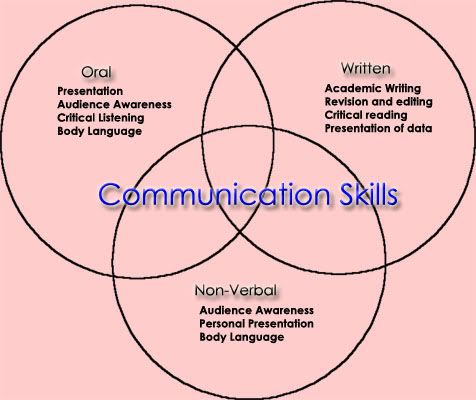
Stay on Message
Tips for
effective communication
Effective communication
begins with the message you want to
transfer from your head into the minds
and hearts of the people to whom you
speak or write.
-
Figure out what your
message is.
-
Organize your thoughts
into a logical sequence.
-
Consider your
expectations. Do you expect
other people to take action as a
result of what you tell them?
Outline your expectations in
your message.
-
Simplify. Give one
message at a time and be
succinct. You are more likely to
be heard and understood if you
keep it simple.
-
Be precise. Use concrete
language and examples to explain
what you mean so that you leave
no room for misinterpretation.
-
Be concise. Say only what
needs to be said to get your
point across. Extra words
confuse the issue.
-
Demonstrate what you mean
when appropriate. Show the other
person what you mean, or draw
him or her a diagram, a chart,
or a graph to emphasize and
enhance your message.
-
Repeat your message.
Studies show that a message
needs to be repeated several
times before it gets through.
Timing Counts
Timing is also an
important element of effective
communication. Time your communications
so that they are delivered:
-
When you have the person's
attention. Your message is
unlikely to be heard if you try
to communicate with someone who
is in the middle of doing
something or surrounded by
distractions.
-
When the person is most
receptive. Pick a time when
co-workers can focus on your
message. Trying to communicate
with them when they're rushing
out the door or on their way to
lunch isn't likely to produce
positive results.
-
When you are prepared to
answer questions. Remember
that good communication is
interactive. Always be prepared
to clear up any issues your
listener doesn't understand.
Follow these tips to stay
on message, and you'll gain a reputation
as a great communicator at work.
Read More...
|

Prostate Health For Men...
Get you PSA
tested!
|
If you don't know what
your prostate is or what
it does, you're
certainly not alone:
most men don't. But you
really should. More than
30 million men suffer
from prostate conditions
that negatively affect
their quality of life.
|
| |
|
·
|
Over 50% of men
in their 60s and
as many as 90%
in their 70s or
older have
symptoms of an
enlarged
prostate (BPH).
|
|
| |
|
·
|
Each year over
230,000 men will
be diagnosed
with prostate
cancer and about
30,000 will die
of it.
|
|
| |
|
·
|
Prostatitis is
an issue for men
of all ages and
affects 35% of
men aged 50 and
older.
|
|
| |
This website
offers you a guide to
the prostate and various
conditions that can
affect your health.
Wear Blue to fight
prostate cancer.
|
|
|
Answers:
(1) 2; 4
(2) third
(3) 10
(4) 140/90
(5) 18
(6) 4
(7) 100
(8) 15
(9) 250
(10) 0.08
|
 Blue
Ridge Safety Council Announces New
Officers for 2010 Blue
Ridge Safety Council Announces New
Officers for 2010
Chair:
Mike Wright
161 BallPark Road
Lawndale, NC 28090
704-538-3691
mm_wright@bellsouth.net
Treasurer:
Ted Hendrix
The mission of the Blue
Ridge Safety Council is to promote
safety in industry, home and public
places, with special emphasis upon
industrial safety. It is operated as an
independent, noncommercial, nonpolitical
organization. Membership in the council
offers you the opportunity of meeting
and exchanging ideas with other members
with the common goal of preventing
accidents/injuries both on and off the
job.
For information regarding
the Council, or if you are not yet a
member but would like to become one, you
may contact one of the Blue Ridge Safety
Council Officers.
|
|
About N.C. Industrial Commission
Safety Section
The N.C. Industrial
Commission Safety Education Section stands
ready to assist you with your Safety
training needs. We offer a variety of
courses, designed to suit your needs. Please
give one of our Industrial Safety
Representatives a call.
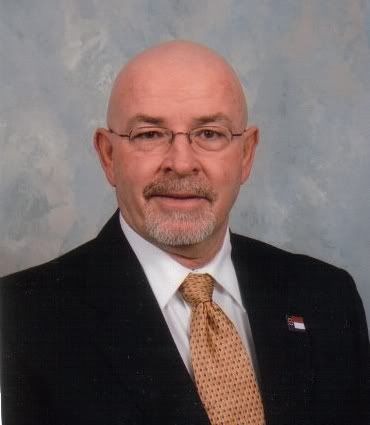 DENNIS
PARNELL DENNIS
PARNELL
Director Safety Education
919-218-3000-Cell
919-807-2602
Dennis.Parnell@ic.nc.gov
 KIM
NADEAU
Program Assistant
919-807-2603
Kim.Nadeau@ic.nc.gov
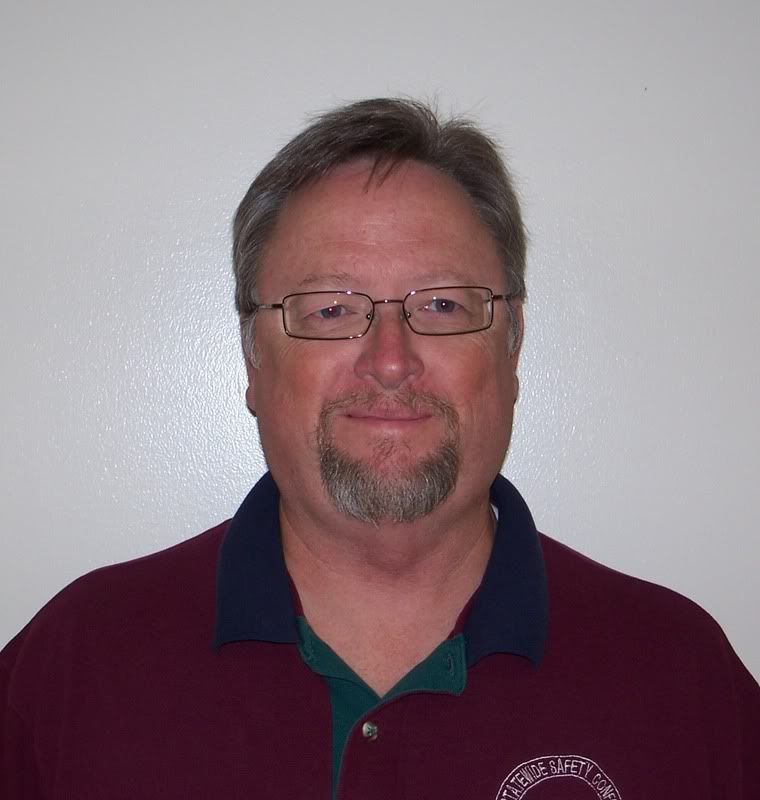 RANDY
CRANFILL RANDY
CRANFILL
Western Carolina Area & APCAP & APW
Coordinator
919-218-2986
Randy.Cranfill@ic.nc.gov
 ALVIN
SCOTT ALVIN
SCOTT
Eastern & Northeastern Areas, Eastern
Defensive Driving Instructor
919-218-2792
Alvin.Scott@ic.nc.gov
WE ARE
STILL WORKING FOR YOU!
|
|
|
|
Quick Links
General
Industry
|
|
Quick Links
Fleet Safety
Winter Driving...Skids
|
|
Quick Links
CENTRAL
PIEDMONT SAFETY COUNCIL
Membership
Brochure
|
|
Quick Links
EASTERN
CAROLINA SAFETY COUNCIL
Membership
Brochure
|
|
Quick Links
SOUTHEASTERN SAFETY COUNCIL
Membership
Brochure
|
|
Quick Links
WESTERN
PIEDMONT SAFETY COUNCIL
Membership
Brochure
|
|
Quick Links
MID-STATE
SAFETY COUNCIL
Membership
Brochure
|
|
Quick Links
BLUE RIDGE SAFETY COUNCIL
Membership Brochure
More About Us |
|
Quick Links
NORTHEASTERN SAFETY COUNCIL
Membership Brochure
|
|
Quick Links
WESTERN
CAROLINA SAFETY COUNCIL
Membership Brochure
|
|
Quick Links
NC RURAL WATER ASSOCIATION
|
|
Quick Links
SIGN-UP FOR OUR NCIC SAFETY
BULLETIN
Email/Newsletter
|
|
news & notes

NOT LIKE A
HOUSE ON FIRE
Bring workplace fire safety smarts home.
-
Store flammable materials in tight,
labeled containers away from heat
and electricity. Keep them in a
separate garage or storage building.
-
Use oil-based paints in well-venti-
lated areas with no ignition
sources.
-
Put flammable-liquid-soaked
rags outside or in closed
containers.
To prevent electrical fires at home:
-
Check wires for intact insulation.
-
Don't overload circuits, such as
with too many appliances in the
kitchen.
-
Don't run cords under rugs.
Keep ignition sources away from flammable
materials:
-
Use a fireplace screen and clean the
chimney yearly.
-
Keep kerosene heaters away from
burnables.
-
Use only kerosene in a kerosene
heater and fill it when it is cool.
-
Don't smoke around flammable liquids
or vapors.
-
Don't tuck in electric blankets or
pile things on them.
-
Turn pot handles away from the stove
edge and other burners.
Use workplace emergency steps at home:
-
Install smoke detectors on every
floor.
-
Practice an evacuation plan.
-
Test fire extinguishers monthly.
-
Teach everyone to STOP, DROP, AND
ROLL if their clothes catch fire.
And help is just a phone call away.
Call your
NCIC AREA
SAFETY CONSULTANT!
|
|
Quick Links
 DECORATING
DO'S AND DON'TS DECORATING
DO'S AND DON'TS
The best places for holiday decorations are in
lobbies, reception areas, and break rooms.
Follow these recommendations:
DO USE
-
Artificial trees and greenery made of
noncombustible or fire-retardant
materials or treated with flame
retardant
-
Nonbreakable decorations
-
Flame-retardant paper or cloth
decorations
-
UL-approved holiday lights and extension
cords only
DON'T USE
-
Decorations made of flammable or
combustible materials
-
Electric lights on metallic trees
-
Decorations that block emergency
equipment, signs, and exits
-
Lighted candles
-
Stapling of light cords to the wall
-
Cords in aisles, dangling over
partitions or anywhere they could be
tripped over
-
Lights left on overnight or over
weekends
Give us a call...
|
EFFECTIVE COMMUNICATION
Effective communication is:
-
Interactive. It flows both ways. You
speak and you listen.
-
Informative. It tells you and others
what you need to know.
-
Positive.
It focuses on the exchange of ideas and
information to improve relationships and
interactions on the job.
-
Productive. It allows you to
interact with co-workers so that you can
perform your jobs efficiently.
CONSTRUCTIVE
CRITICISM
When you must
criticize, here is how to do so in a
constructive way that gets your message across
without offending.
-
Critique
in private. Do not em- barrass a
co-worker by dis- cussing his or her
shortcomings in public.
-
Begin with a positive statement.
Praise something about the co-worker's
performance. This sets a positive tone
for the conversation.
-
Use
objective feedback. Focus on
the situation, not the person.
-
Explain
what you believe went wrong and talk
about how together you can rectify the
situation.
-
Set clear
expectations. Be specific about the
changes you think need to be made.
-
End
on a positive note.
Stress how the
changes you've
suggested can help both of you perform
better.
|
|
Quick Links

HOLIDAY TRAVEL TIPS
If you're
traveling by air this year, follow these tips from
the U.S. Transportation Security Administration (TSA):
-
Don't
pack or bring prohibited items such as
knives, pointed metal scissors, or box
cutters. Review the complete
"prohibited"
and
"permitted"
list at
www.tsa.gov.
-
Place valuables
such as jewelry, cash, and laptop computers
only in carry-on baggage.
-
Avoid wearing
clothing, jewelry, and accessories that
contain metal; they may set off the metal
detector.
-
Avoid wearing
shoes that contain metal or have thick soles
or heels. Many types of footwear require
additional screening even if the metal
detector does not alarm.
-
Put all
undeveloped film and cameras with film in
your carry-on baggage. Checked baggage
screening equipment will damage undeveloped
film.
-
Declare firearms
and ammunition to your airline and place
them in your checked baggage.
-
If you wish to
lock your baggage, use a TSA-recognized
lock. Check the website for details.
-
Do not bring
lighters to the airport. No matches or
lighters are allowed in checked baggage. You
may carry four packs of matches in carry-on
bags or on your person.
-
Don't
pack wrapped gifts, and don't
bring wrapped gifts to the check- point.
Wrap gifts when you arrive or ship gifts
before your departure.
|
|
Quick Links
THE FIRE FORMULA
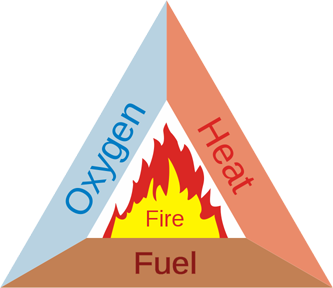
To start a fire, you
need just three things:
-
An ignition
source, such as heat, flame, or sparks,
-
Oxygen from the
air, and
-
Fuel, such as
paper, wood, or other combustible or
flammable material.
It's easy for fires to
get started but it can be hard to put them out. The
best approach to fire safety is prevention. Keep
flammable and combustible materials away from
ignition sources. |
|